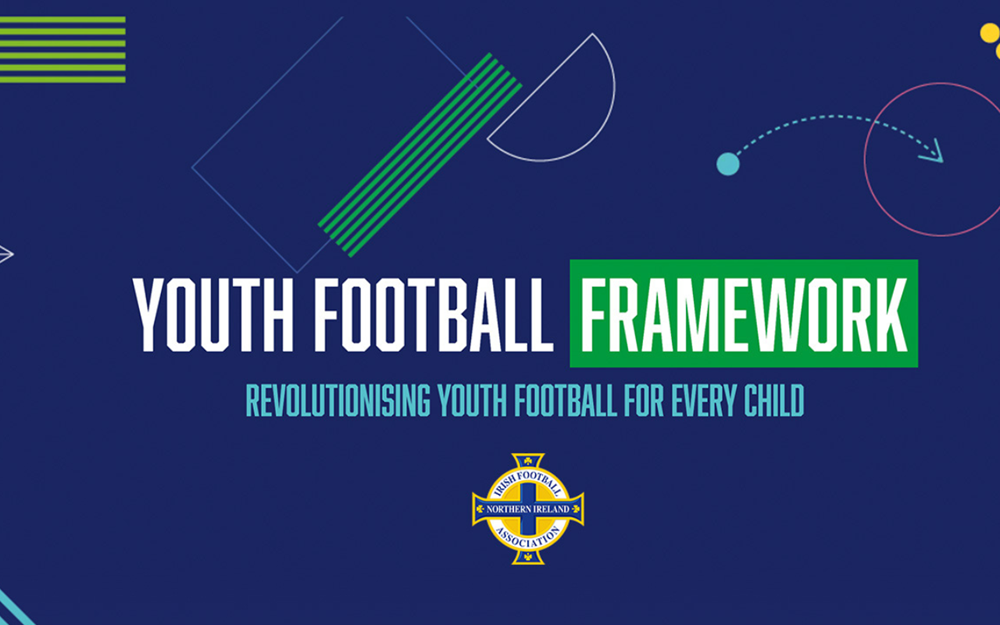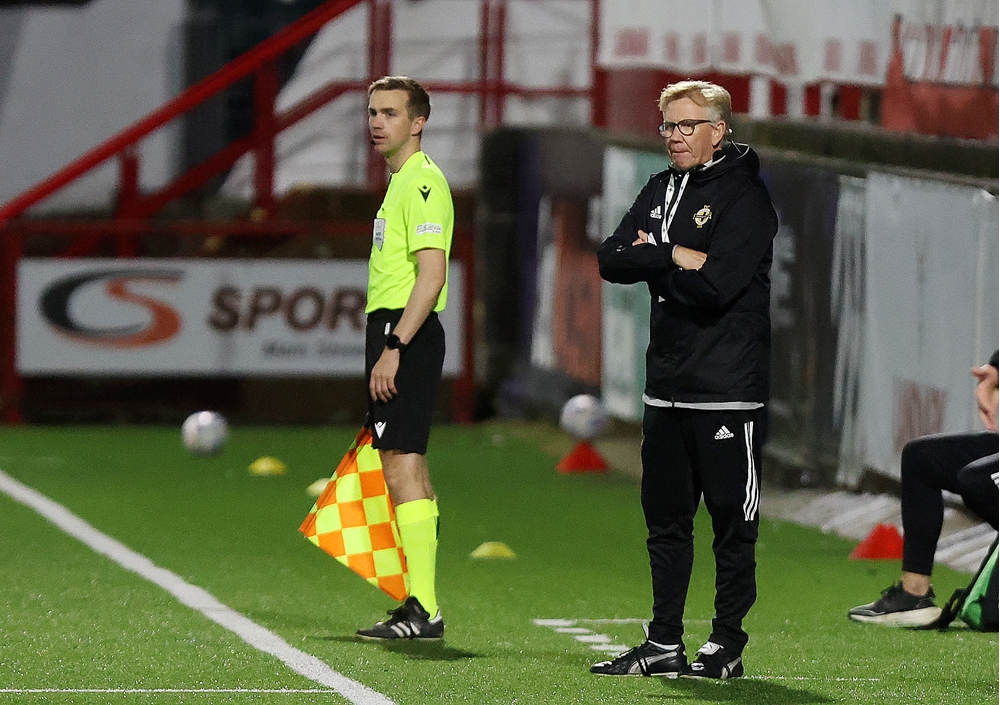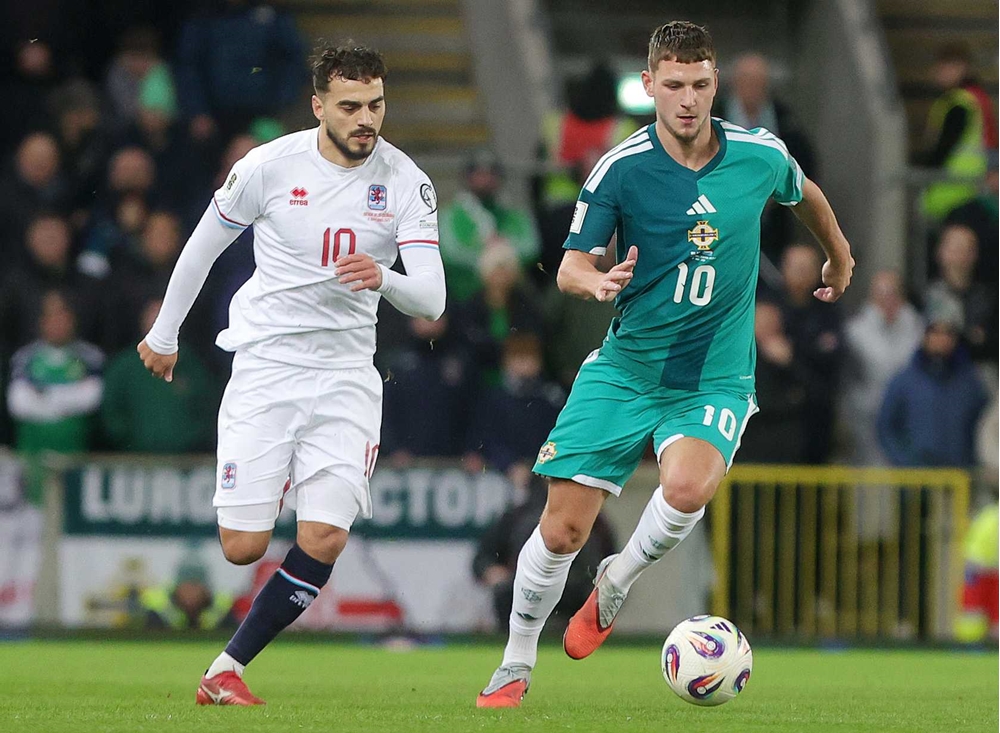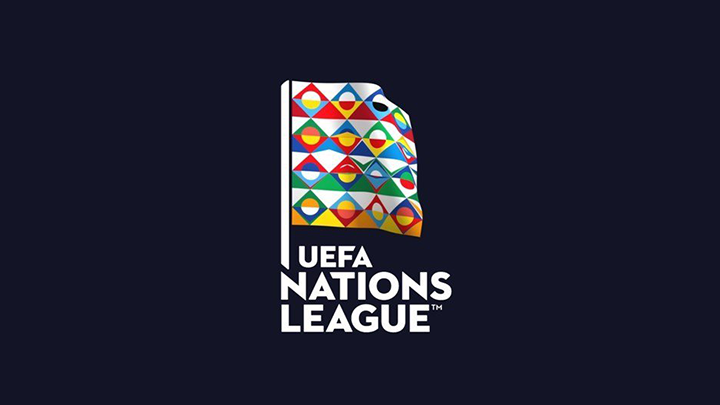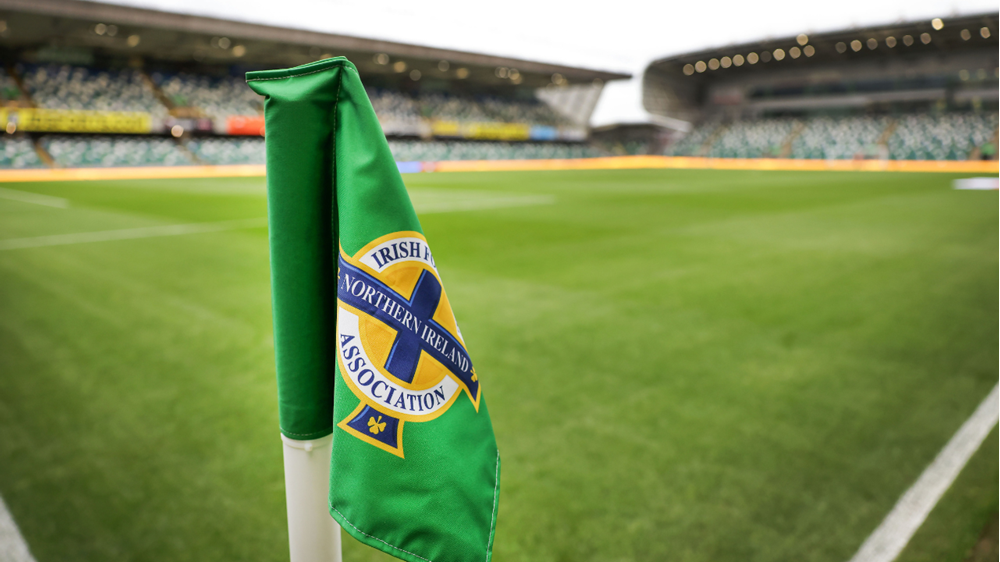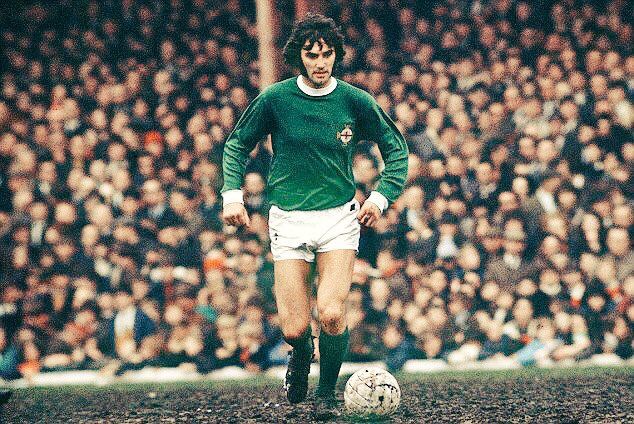
On the 20th anniversary of George Best’s death, the Irish FA looks back at his career and some of the iconic moments that earned him legendary status…
It all began in September 1963, just two years after he signed schoolboy forms for Manchester United, when he made his league debut for the Old Trafford club in a home fixture against West Bromwich Albion at the tender age of 17.
In March 1966 Best first introduced himself to the world when Manchester United played Benfica in a European Cup quarter-final second leg in Lisbon.
The boy from East Belfast, who was still just 19 at the time, scored a brace in the first 13 minutes of the match as United secured a 5-1 victory away from home.
His performance was so dazzling that the Portuguese media referred to him as ‘El Beatle’ (‘The Fifth Beatle’) - and the nickname linked to global pop sensations The Beatles became synonymous with the star forward.
Two years later, against the same opponents in the European Cup Final, Best scored the crucial goal in extra time.
After getting past the Lisbon team’s defence and evading the goalkeeper, his neat finish helped secure United’s 4-1 victory.
With this performance, along with outstanding play during the rest of that year (1968), the forward won the Ballon d’Or, becoming the first and only player from Northern Ireland to be named European Footballer of the Year.
Throughout the 1960s he was arguably the world’s greatest footballer, winning two league titles and a European Cup with Manchester United as well as being named European Footballer of the Year - and all that by the time he was 22.
In 1970, after receiving a month-long ban for kicking the ball out of a referee’s hands during a League Cup match, critics believed that Manchester United were better off without Best.
However, during a fifth round tie in the FA Cup against Northampton Town, he proved the doubters wrong with an eye-catching display. The final score was 8-2 in favour of the Red Devils and Best notched six of the goals in the comfortable victory.
During the 1971-72 season, in a league game against Sheffield United, Best produced a fantastic solo goal. Using his skill and electric pace, the forward was able to evade several defenders before slotting the ball home.
However, it was his nonchalant celebration of the goal that had everyone purring. His cool-as-a-cucumber reaction made out that it was a normal thing for footballers to do. But it was in fact an extraordinary piece of skill.
In February 1974, after 468 appearances and 178 goals, he eventually called time on his career at Old Trafford.
After a stint in America he was playing for Fulham in the Second Division in 1976 when he scored a wonderful solo goal in a match against Hereford United. Despite his diminished speed, he consistently demonstrated an ability to bamboozle defences with his skills. And the match produced one of the most iconic and hilarious moments of his career when he tackled team-mate Rodney Marsh.
While Best produced several magic moments for his respective clubs, he was equally effective when donning the green of Northern Ireland. He won 37 caps for his country, scoring nine goals.
On the international stage Best and Pat Jennings both made their debuts in a 3-2 British Home Championship win against Wales in Swansea on 15 April 1964.
Just seven months later Best’s first international goal arrived when he opened the scoring in a 2-1 World Cup qualifying defeat against Switzerland in Lausanne.
George himself believed his finest ever performance in a green shirt was the 1-0 victory over Scotland on a perfect autumn night at Windsor Park in October 1967.
Best was unplayable that evening and only the sheer brilliance of Celtic goalkeeper Ronnie Simpson prevented George from getting on the scoresheet.
During a European Championship qualifier against Cyprus in April 1971 he set the record for the quickest hat-trick in the history of Northern Ireland’s senior men’s international team. Playing up front he scored three goals within the first 12 minutes of the match as the national team cruised to a 5-0 victory in Belfast.
Less than a month later Best produced one of the most famous ‘goals’ in the game, despite it not counting.
In a match against fierce rivals England at Windsor Park, goalkeeper Gordon Banks attempted to clear the ball. After he had thrown it up in the air, Best intervened and kicked the ball over Banks’ head and headed it into the back of the net.
However, the referee immediately blew his whistle and controversially disallowed the goal, stating Best’s actions amounted to “ungentlemanly conduct”. As a result England went on to win the match 1-0, with Northern Ireland missing out on the chance to be crowned British champions.
Five years later, in a World Cup qualifier against the star-studded Netherlands, Best produced a stellar performance in a 2-2 draw.
After coming out of international retirement, he impressed in Rotterdam, including nutmegging Dutch legend Johan Cruyff. What made that moment more iconic was that Best had told team-mates and the media before the game that he would do just that!
His final appearance for Northern Ireland came in a 1-0 reverse to the Netherlands at Windsor Park in October 1977.
Following his retirement George worked in the media as a football pundit for a number of years before sadly passing away on 25 November 2005 aged just 59.
Best was not only a football star. He transcended the sport with his dazzling play and larger-than-life personality.
Decades on the boy from the Cregagh Estate in Belfast remains a revered figure in football, firmly established as a legend for both club and country.

